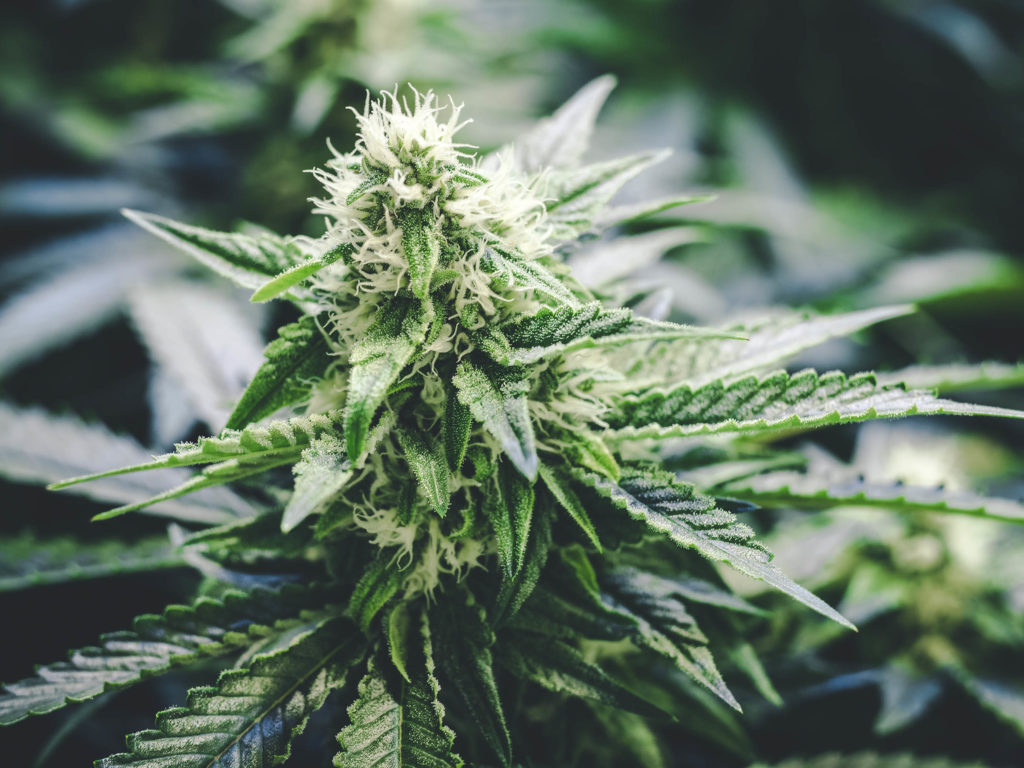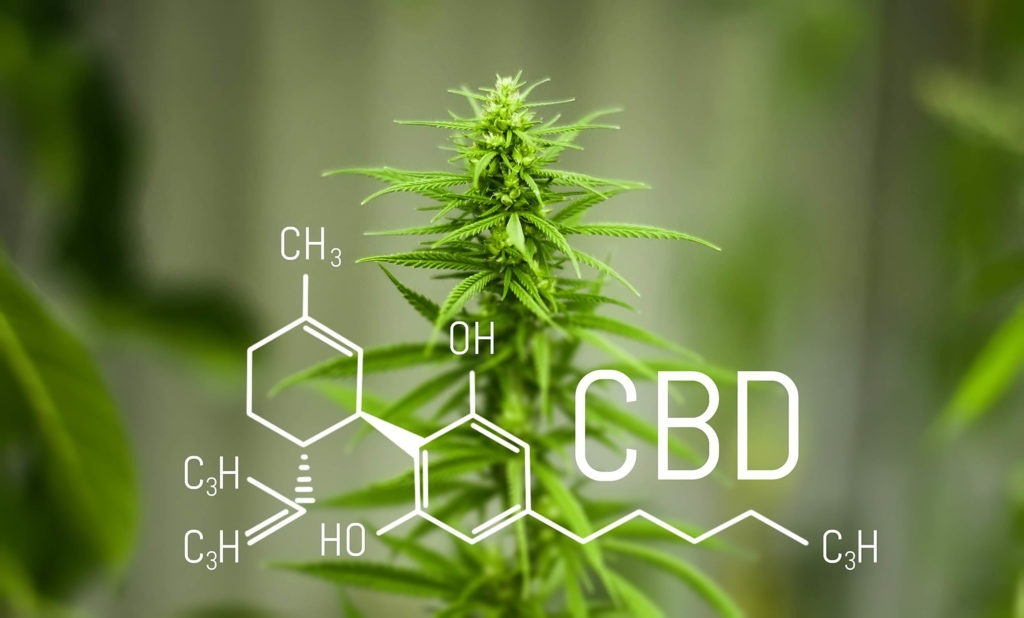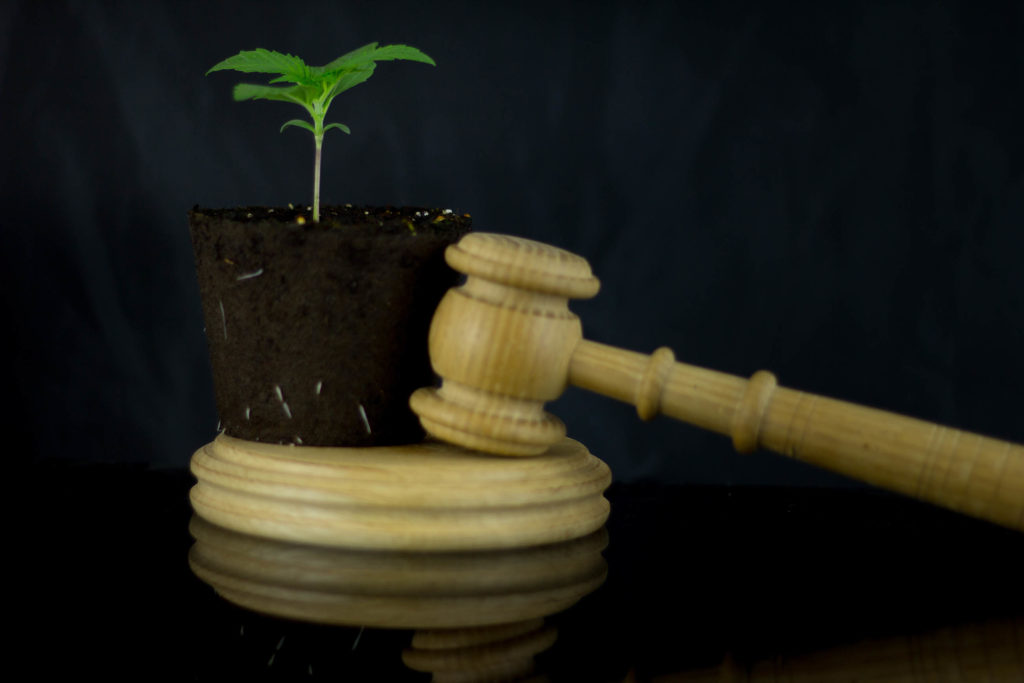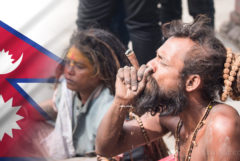Cannabis is so prevalent in Bhutan that it’s often regarded as a weed, rather than a beneficial plant. The law forbids its use, possession or sale, but authorities often turn a blind eye to those that smoke it. However, seizures of cannabis are on the rise, and it looks like the country may be starting to take the illegal cannabis trade more seriously.
- Capital
- Thimphu
- Population
- 878,000
- CBD Products
- Illegal
- Recreational cannabis
- Illegal
- Medicinal cannabis
- Illegal
- Cannabis laws in Bhutan
- Can you possess and use cannabis in Bhutan?
- Can you sell cannabis in Bhutan?
- Can you grow cannabis in Bhutan?
- Is CBD legal in Bhutan?
- Can cannabis seeds be sent to Bhutan?
- Medicinal cannabis in Bhutan
- Industrial hemp in Bhutan
- Good to know
- Bhutan’s cannabis history
- Bhutanese cannabis – what’s it like?
- Where is cannabis grown?
- Is cannabis becoming a problem for Bhutan?
- Will it be legalised in the future?
Cannabis laws in Bhutan
Can you possess and use cannabis in Bhutan?
The plant grows widely across the country and has been used for centuries, for a variety of purposes – from feeding pigs to producing woven fabric.
Prior to the 1970s, Bhutan’s government didn’t even regard cannabis as a drug. The first ever cannabis-related arrest in the country wasn’t made until 1989, when a man was prosecuted for smoking it.
In more recent years, authorities have acknowledged the increase in drug use (albeit small compared to neighbouring countries like India). This led Bhutan to become a party to the United Nations Convention Against Illicit Traffic in Narcotics Drugs and Psychotropic Substances Act, 1988.
In 2002, Dr Rinchen Chopel, acting as Bhutan’s joint director of healthcare, stated that the government’s priority was to start burning cannabis plants, and to offer counselling for young people, to discourage them from smoking it.
In 2011, Bhutan’s Penal Code changed. Before, it stated that using cannabis was considered a misdemeanor, but now cannabis use is considered a ‘petty misdemeanor’. That means, if caught with cannabis for personal use, you could receive a prison sentence of one to twelve months. If caught possessing significant amounts, this could be extended to one to three years.
However, if the offender agrees to accept counselling for their habitual drug-use, they will not be prosecuted.
Can you sell cannabis in Bhutan?
Drugs trafficking is not considered a serious problem in Bhutan. Production of cannabis is limited in the country and most related crimes are small-scale. However, the country has many through-routes linking it with India and Tibet; which drugs smugglers sometimes use.
Cannabis is classed under Schedule III of the Narcotics and Drugs Act, and selling it is classified as a misdemeanour (if the amount is over 50 grams). If caught selling cannabis, the offender may be sentenced to five to nine years in prison.
Can you grow cannabis in Bhutan?
It’s technically illegal to cultivate cannabis in Bhutan. Growing the plants is regarded as a fourth degree felony and is punishable with three to five years’ imprisonment.
However, despite the government’s intentions to start burning cannabis, its growth is still widespread in the wild. Most Bhutanese people don’t need to cultivate it, as it probably already grows somewhere close to their home.

Is CBD legal in Bhutan?
The law doesn’t differentiate between CBD and cannabis. Although CBD doesn’t contain high enough levels of THC to achieve a ‘high’, this still means that it is illegal in Bhutan, and cannot be purchased, used or sold there.

Can cannabis seeds be sent to Bhutan?
The sale or possession of cannabis seeds is illegal. This means that they cannot be purchased in Bhutan, and cannot be mailed through the post from another country.
Medicinal cannabis in Bhutan
There is no medicinal cannabis programme in place in Bhutan. All cannabis use is considered illegal, regardless of whether the individual is using the plant to medicate themselves or not.
The same applies for growing cannabis for medicinal purposes.
Industrial hemp in Bhutan
Use of industrial hemp is limited in Bhutan. Some of the rural communities use it to make netting, rope and cloth, but there are no large-scale hemp plantations for this purpose.
This is because there are several other plants growing in the country that are suitable for industrial use. For example, the Bhutanese people tend to favour the giant Himalayan nettle (Girardinia diversifolia) for making fibre. Paper is usually made from two native tree species; de-nar and mitsumata.
Despite not being a popular plant for practical purposes, the government recognises the value of the plant. It is even listed as a fibre of economic importance in UN Food and Agricultural Organisation documents.
Good to know
If you are travelling to Bhutan (or currently live there), you may be interested to know the following:
- Although reports are limited, statistics from the National Drug Law Enforcement Unit (Royal Bhutan Police) show that 86.7% of drug abusers from 2004 to 2008 were young people. Over 50% were students.
- Despite cannabis growing abundantly in the wild, Bhutan isn’t a popular destination for ‘drug tourism’. This is largely because tourists must pay between $200 and $250 a day to stay in the country.
- Although cannabis is illegal, dolma isn’t. Dolma is a stimulant made of lime paste, betel leaf and areca nut, and is traditionally chewed (often in social situations). Despite its legal status, it often contains harmful chemicals.

Bhutan’s cannabis history
Cannabis has been growing wild in Bhutan for centuries. Scientists believe that it established itself in the country after the last ice age (around 11,700 years ago).
During the ice age, sheets of ice would have pushed all the hardiest plants from the formerly temperate zones, moving them initially towards the equator. When the world heated up again, the cannabis spread northwards, eventually arriving in Bhutan.
At this period of time, it’s believed that three main types of cannabis were established:
- The board-leafed hemp biotype (common in China and Russia)
- The broad-leafed drug biotype (common in Central Asian countries like Afghanistan)
- The narrow-leafed drug biotype (common in the Himalayan regions)
For centuries, the Bhutanese people largely ignored cannabis. It’s not mentioned in any of their ancient medical texts, and there’s not much evidence to suggest it was viewed as anything other than a weed; though it was used to make bows for archery. This is unusual for a Himalayan culture; most other nations nearby have used cannabis extensively for years.
This started to change in the 21st century. The country opened its doors to foreign influence and technology such as televisions. This introduced the concept that the cannabis that was used as pig food until now, could also be consumed for recreational purposes.
As a result, cannabis use rose among young people.
Bhutanese cannabis – what’s it like?
Bhutan’s cannabis strains are narrow-leaf varieties and are often quite potent. They’re similar in appearance to many other South Asian sativa plants. However, botanists state that they’re actually a subtype of C. sativa Sp. Indica, which provides a mellow, cerebral high.
Thimphu cannabis, which is Bhutan’s most famous strain, is described as tasting both sweet and sour, with a hint of earthiness. It’s tall and can grow up to three metres in height. According to the locals, it also tends to make users very hungry; which is why farmers often feed it to their pigs to fatten them up.
Some other countries (like the Netherlands and the US) sell Thimphu cannabis commercially.
Where is cannabis grown?
The plant flourishes in the wild across the country, even in cities and towns. You’ll often see it growing along the roadsides, in wasteland, in gardens and even in the cracks in the pavement. Growth is particularly prevalent in the Thimphu district, west Bhutan, and the Bumthang district.

Is cannabis becoming a problem for Bhutan?
The government is becoming increasingly worried about the rise of cannabis use in Bhutan, especially among young people. So far, authorities have made some attempt to address this – notably destroying cannabis plants across the country. However, it grows wild everywhere, which makes eradication almost impossible.
In 2014, the Bhutan Narcotics Control Authority arranged a ‘mass eradication’ campaign, with students, officials and police personnel involved. Students and young children are often included in these eradication programmes, to encourage them not to consume cannabis in the future.
Bhutan is also situated on a trafficking route, and illegal contraband does enter the country fairly regularly, particularly via Phuntsholing (which is next to the West Bengali town of Jaigaon).
Will it be legalised in the future?
Cannabis use for recreational purposes is still a relatively modern concept in Bhutan, and the government is undertaking eradication efforts. It therefore seems unlikely that their attitude will change in the near future. Likewise, using cannabis for medicinal benefit has not been mentioned by any of the country’s officials – and it’s doubtful that they will introduce a medicinal programme any time soon.
- Disclaimer:While every effort has been made to ensure the accuracy of this article, it is not intended to provide legal advice, as individual situations will differ and should be discussed with an expert and/or lawyer.











Hi, I am curious if you’ve put anything together regarding legislation in all countries when it comes to HEMP and CANNABIS. I am trying to better understand what policies are in place, and the evolution of policy, in countries throughout the world, and for what purposes each of these countries is using hemp and cannabis.
Hi Jack,
Thanks for your comment. We do have the ‘Cannabis in…’ series, which does not cover every country, but it does cover many of them and we are adding to it and updating it all the time. Simply type ‘Cannnabis in’ into the search bar and you will find the list of countries that have been covered so far. I hope this is helpful to you and that you continue to enjoy the blog.
With best wishes,
Scarlet
Damn right! Bhutan should legalize marijuana and we can all be happy
😊😊
I was in Bhutan some years ago and as you say it is growing wild almost everywhere. In the east of the country we walked to an old palace and one of the guides in his limited English told me they grow big plants in the area with heads as long as your arm. I sampled some plants while there and the visual effects were amazing it is definitely a more pure sativa strain and should be isolated and worked on for medicinal uses.
Bhutan has a LOT of cannabis. I know a Mr. Dorji who works for the king, and we have a lot of conversations about marijuana. Sent me a lot of pics. Do you want them?
So I have suggested to Mr. Dorji that the king approach the problem , if that is a problem, like we do here in Oregon. I would like to see Bhutan take a more enlightened approach to the benefits and problems that accompany cannabis
john mosso
Hi John,
Thanks for your comment, it sounds like you have a fascinating project there! We would love to see your photos, would we be able to publish them on the blog also? Looking forward to hearing from you,
With best wishes,
Scarlet
Cannabis for medicinal use is being approved in many western countries and in the states. Bhutan could offer certified organic cannabis for export to these places – and legalize production for export . Could be a good idea for the visionary king
If you’re referring to Mr. Benji, I’m sad to say that he does not work for His Majesty @john mosso. Check your sources
Well, I don’t know what’s the reason for classifying weed as a drug … Come on now , has there been case of any murder, or any other means of harm done to people through the use of it. ?? None. . Well, let’s compare marijuana with alcohol.. Through the use of alcohol, I have heard and seen murder, fights , rape , etc which is legalized … And of the other hand, marijuana users are found to be ?? .. Violent ?? . A big NO ….. Result of use of marijuana = good sleep , laughter, good conversations and much more … Whereas the only case caught of marijuana is smokers caught smoking or found hand-rubbing … And is illegal … … What do the law makers think ? .. It must have been illegalized because older people (not having any idea of what It does) considered it to be a drug .. But living in the 21st century with abundant knowledge and advancements people should realize things … So unfair .. Just a thought .. Cause no use .
well bhutan have large amount of cannabis we should cultivate more and better bread and sell the product to foreign countries were cannabis are made legal
but selling of cannabis should be done in legal way still getting it ban in our country cannabis should be only for foreign supply not for domestic use.
Same here ….
I agree 💯 with you…
Keep updating
I am an ex-pat, living in Bhutan for three years. I can give you info. if you need it.
hi scan would it be possible to have your e-mail? thank you
Hey Kevin, any luck?
Any seeds…? Have u come across any?
Hi I will be in Bhutan next week, can you point me in the right direction please?
Hi there,
Does anyone know somewhere i can get good quality cannabis bud in Bhutan? I am travelling out there in 2 weeks and i would like to have some lined up for when i get out there so i can have a good smoke ;).
Thanks
Simon
Dear Simon,
Thanks for your message. Unfortunately we can’t approve all the content for our blog since it’s not intended as a place for such questions. Maybe you can find info on the forum http://forum.sensiseeds.com.
Best, Martijn
so far in Bhutan the prohibition for hemp was strictly followed by the narcotics division and there were even hemp uprooting projects in urban area’s like Thimphu, Paro, Punakha, etc, During the harvest season in Bhutan the hashish is very common and people get it from every tom, dick and harry in local areas and the taste and aroma of the hashish is extremely good, there is a blend of pine wood and incense smell if you get the better qualities of hash extracted from the wild plants, hash in Bhutan are mostly hand rubbed and its sold for Nultrum.1000 which is $.20(US) for a index finger long, there are certain terms used for hash in Bhutan like – Black, Nap, Nakku, etc,.
If at all Marijuana is legalised in Bhutan, the area and the terrain’s of the country is perfect for growing high quality feminized plants since most of the plants in Bhutan are female only way to produce more smokeable THC is through producing hash
Thank you very much for your feedback. I would love to know more! If you have any other information for me please let me know 🙂
Kesang is correct here. hashish for just 1000 nu. not even 20 usd. probably this country sells the best and cheapest hashish any where. Hashish as in if particularly noted it is like the indian charas. Nu.6000 just for the tourist who get hit by the middle mans i suppose. wee is free and easy here
Hi,
Just hit upon your blog. It’s a great travel guide for people who smoke marijuana. Visited Bhutan and I must say it’s a much safer country than Nepal in terms of tolerance in smoking marijuana. Keep up the good work.
Thanks for the feedback! I’m hoping to visit next year